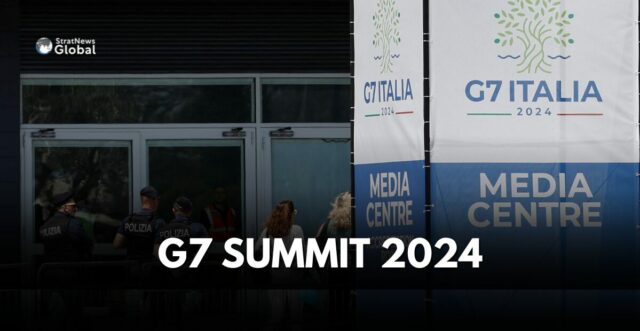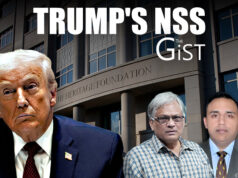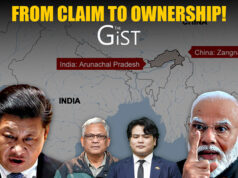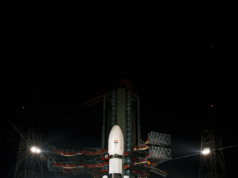Group of Seven (G7) leaders commenced their annual summit on Thursday with a focus on bolstering support for Ukraine in its war against Russia and presenting a united front against China’s political and economic ambitions.
Held from June 13-15 in southern Italy, the summit’s agenda also includes discussions on the Middle East, migration, and artificial intelligence (AI). The challenging schedule comes at a time when many leaders face significant domestic issues.
Leaders Under Pressure
U.S. President Joe Biden, facing a tough re-election campaign in November, arrived in Italy following the conviction of his son, Hunter Biden, for lying about his drug use to illegally buy a gun.
British Prime Minister Rishi Sunak is predicted to lose power in the upcoming July 4 election. Meanwhile, the leaders of France and Germany are recovering from recent political defeats, and the prime ministers of Canada and Japan are struggling with low approval ratings.
Italian Prime Minister Giorgia Meloni, the host of the summit, is currently enjoying a political high after her party’s success in Italy’s European election last weekend. However, achieving substantial results at the luxurious Borgo Egnazia resort remains a challenge.
Support for Ukraine
Determined to take action, the G7 leaders are expected to announce a $50 billion loan package for Ukraine, funded by interest from frozen Russian assets. This plan is complex and will likely only be agreed upon in principle, with further legal details needing the support of European nations, particularly Belgium, which is not a G7 member.
Ukrainian President Volodymyr Zelenskiy will attend the summit for the second year in a row and is expected to sign a long-term security accord with President Biden. “By signing this, we’ll also be sending Russia a signal of our resolve,” said White House national security adviser Jake Sullivan.
Confronting China
In addition to addressing the Ukraine conflict, the G7 summit aims to confront China’s support for Russia and its industrial over-capacity. The U.S. recently expanded sanctions on Moscow, including targeting China-based companies supplying semiconductors to Russia.
The European Commission announced extra duties on Chinese electric vehicles (EVs), following the U.S.’s quadrupling of duties on Chinese EVs to 100%. While G7 leaders will discuss the impact of high Chinese production levels, EU diplomats caution against escalating to a full-blown trade war with Beijing.
To avoid appearing elitist, the G7 has invited numerous external leaders, including Pope Francis, who will deliver a keynote speech on AI. Other invitees include leaders from major regional powers such as India, Brazil, Argentina, Turkey, Algeria, and Kenya.
The summit will conclude on Saturday, but many leaders, including Biden, will depart on Friday night. The final day will feature bilateral meetings and a concluding news conference from Prime Minister Meloni.
With Inputs from Reuters
Research Associate at StratNewsGlobal, A keen observer of #China and Foreign Affairs. Writer, Weibo Trends, Analyst.
Twitter: @resham_sng





